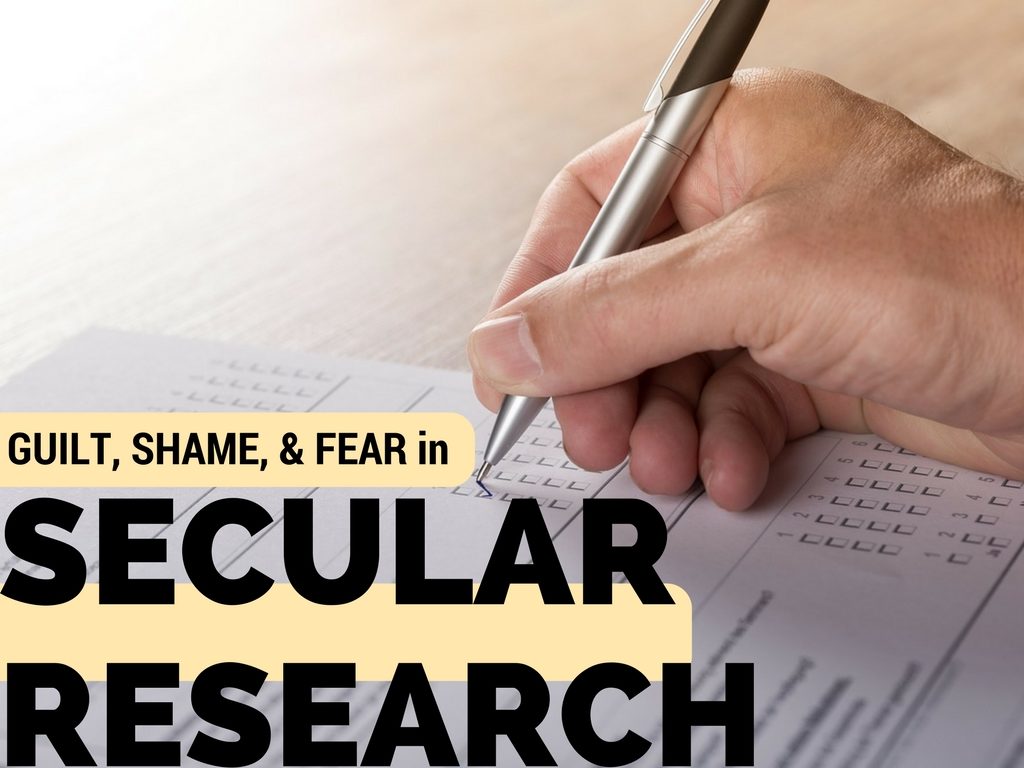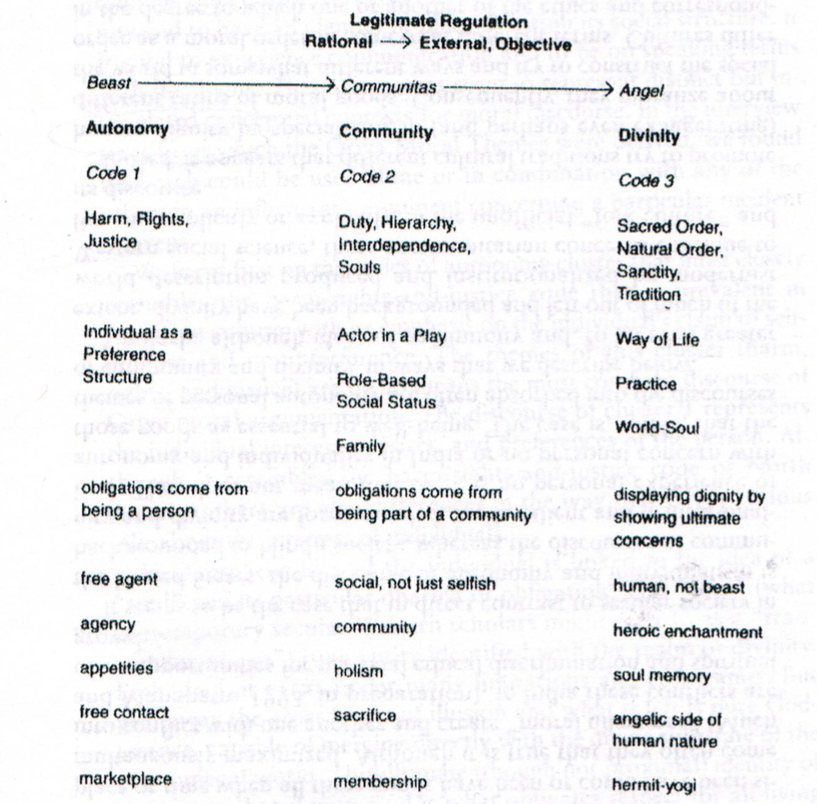Guilt, Shame, and Fear in Secular Research
When I wrote The 3D Gospel and developed www.TheCultureTest.com in 2014, I thought that the concept of guilt/shame/fear cultures was unique to Christian missiology. But recently, I encountered a very similar cultural model by a secular psychologist.
Richard Shweder is a professor of cultural psychology at the University of Chicago. He researches the cross-cultural concepts of self and moral reasoning. In 2003 he co-authored an article “The ‘Big Three’ of Morality (Autonomy, Community, and Divinity) and the ‘Big Three’ Explanations of Suffering.” They analyzed hundreds of interviews from India and noticed three clusters of “moral themes”: autonomy, community, and divinity. Here is an explanation using Shweder’s own language.
Ethics of Autonomy (≈Guilt-Innocence)
The main concern in this ethical system is individual autonomy. We should not interfere with another person’s wants and preferences. The ethics of autonomy reasons in terms of harm, rights, and justice. Don’t infringe upon the rights of other people and do not harm anyone else. Westerners have even extended the idea of “rights” to many areas, e.g., education and health care. Even animals have rights.
In a rather prophetic word, Shweder et al. say about Americans: “We wish to be protected from every imaginable harm, protected from secondary cigarette smoke, protected from psychologically offensive work environments. … We have stretched the notions of rights, autonomy, and harm, even as we wonder nostalgically how we lost our sense of community and divinity” (p 142).
Ethics of Community (≈Shame-Honor)
This moral paradigm is about obligations to the community. People maintain roles and statuses in relation to other members of the group. An ethic of community prioritizes duty, hierarchy, and interdependence. There is a moral obligation to “take care of one’s own.” People rely upon the hierarchy to satisfy their needs—the powerful protect and provide, and subordinates respond with gratitude and loyalty. Life is interdependent. So if an action weakens someone connected with you, then it also weakens you. In this ethic, “personal identity is more closely associated with its statuses and relationships than with its individuality and distinctness” (p 145).
Ethics of Divinity (≈Fear-Power)
A sacred order pervades the entire world. A spiritual force permeates the social and natural world. Humans are always communicating with the realm of the divine world. So morality is following the sacred order of the world and maintaining the sacred traditions. The natural and the sacred are not different orders of reality; rather, the natural world expresses the spiritual world. Our actions directly affect the sacred order. “Persons communicate with the divine and the divine communicates with persons through actions in the world, whether special rituals, work, or ordinary domestic services.”
Below is their summary chart (click to make larger).
The Comparison
Shweder’s three categories (autonomy, community, and divinity) mirror my explanation of guilt, shame, and fear cultures, though with a slight difference. Shweder’s three “moral discourses” focus on the basis of personhood (whereas guilt/shame/fear focuses on moral emotions). The labels explain how cultures define the value and essence of human beings. The three options are: rights and freedoms, status and connection, or spiritual harmony and sacredness. Then by extension, cultures develop an appropriate moral system to protect and preserve their definition of “truly human.” I appreciate Schewer’s model because it highlights an important reality—morality is shaped by identity (as I’ve noted here and here).
Schweder’s full article is available here. His moral paradigm was popularized in The Righteous Mind by Jonathon Haidt, who also developed an online survey that measures your moral orientation: the “Moral Foundations Questionnaire” at www.YourMorals.com.


Great article! I love the connection between the 2 of you. This info is very useful. I am eager to see the American church begin to embrace the honor/shame and fear/power aspects of the gospel which will help re-establish community that is now so lacking in the church. Young people are aching for community and purpose and use the 3-D gospel can help them so much with that issue.
Fascinating! Thanks for sharing! Chewing on this today for sure!
Thank you, this article is very instructive. The terminology “Honor – Shame” is difficult for Westerners to grasp because “Autonomy” thinking drives our perceptions and world view. The biggest hurdle is to understand and start to look through the “Community” lenses that the majority people embrace and use and see as true.
I wrote this a while ago:
“The cultures in Bible times and places were indeed HS oriented, but this HS orientation was founded on the bedrock of Relational Orientation. Western interpreters of the Bible need to research, grapple with, comprehend and re-orientate their understanding of scripture within its Relational Orientated message.”
So, in the fall, our relationship to self, community and God was broken. The first moral emotion experienced,shame,corresponds to our relationship to community, which was just the two, Adam & Eve. When the presence of God enters the picture, the second moral emotion experienced is fear. Guilt doesn’t show up until the (Edenic)law is recalled. This seems agreeable with Romans 7:7.
In the kingdom of God, we are restored in self (righteousness), in community (peace) and in God (joy.) This is huge.